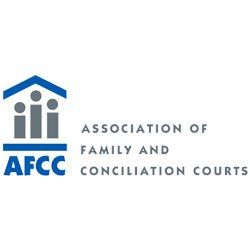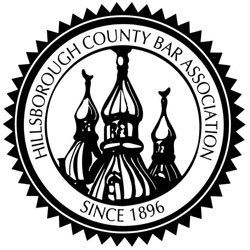Forensic Services
Forensic services include all psychological evaluation and treatment services requested by, or provided for, the courts. Frequently, Dr. DeGeso is appointed by the court, or retained by clients and their attorneys to provide psychological evaluations, treatment, and/or expert witness testimony in family matters before the court. Although clinical issues may be identified and treated, these services are not private or confidential because they are court-ordered.
Court-Ordered Evaluations & Therapy
Divorce involves painful changes to the family structure with hostile, stressful and long-term consequences – both financial and emotional. It is perhaps hardest on the children as they are usually forced to transition between two different households. When a child resists or refuses timesharing with one parent, allegations of abuse (sexual, physical, emotional) countered by allegations of parental alienation (one parent brainwashing the child to hate the other parent) are often brought before the Court to make a determination. However, both parents’ accusations are strongly advocated for by their attorneys and the Court’s concerns for the children’s safety and their best interests becomes elevated. The Court is usually unable to make a determination and therefore orders that psychological evaluations and/or therapy occur first. Ironically, the increased litigation, court-ordered services, and associated financial and emotional costs usually catapult the family further into “divorce war”.
As your children are transported back and forth between homes every week, their wounds in this high-stakes battlefield are unavoidable. They are emotionally bleeding, week after week, and nobody calls for a cease fire to tend to their injuries. Instead, they are told, often indirectly, that one parent is trying to protect them (“all good”) and the other parent is to blame (“all bad”). Unarmed and ill-equipped to deal with the emotional landmines placed around both homes by parents who despise one another, children are forced to accommodate their parents.
They tell each parent what they think he or she wants to hear in order to avoid prolonged conflict. From this, your children learn how to avoid all conflict, how to lie to avoid problems, and how to manipulate to get what they need. They learn that relationships are only good if they are conflict-free or if they can just endure the intense verbal attacks.
Their trust is shattered by parents whose disdain for one another constantly interferes with decision-making on their behalf. From this, your children learn to rely on no one or how to make decisions and plans for themselves prematurely.
Although they very much want and need a sense of safety and love in a close relationship, they don’t really believe they are deserving of love and have no reference for how to develop and maintain a healthy, secure relationship. From this, your children learn to protectively withdraw and isolate themselves from others or to attach too intensely and become overly possessive and clingy with others.
They may become emotionally or physically upset by reminders of the divorce, experience intrusive thoughts or related nightmares.
They may intentionally go out of their way to avoid places or people that remind them of the divorce.
They may appear indifferent or feel numb. Some older children may turn to drugs or alcohol to numb themselves.
They may startle easily, experience anxiety, become irritable, feel on guard, or unable to relax.
While PTSD is not typically associated with divorce, children whose parents are involved in a high-conflict divorce often feel like they are living in a war zone, experience a constant threat of danger, and may experience first-hand repeated or extreme exposure to aversive details without enough time to heal from one attack before they are exposed to the next. Essentially, these children are held in domestic captivity, even after such divorces are finalized.
Children who are forced to endure their parents’ hostile divorce frequently display symptoms that are similar to those seen in children who are abused and neglected. Dr. DeGeso’s expertise in trauma and PTSD are often called upon by the Courts to evaluate or treat these young victims of divorce war. If you are being falsely accused of abusing your children, of alienating your children, or if your children are demonstrating resistance to timesharing, speak with your attorney about petitioning the Court to appoint Dr. DeGeso as your children’s evaluator or therapist. Please do not wait and allow your children to be exposed to prolonged divorce and post-divorce stress.
Family Guardian ad Litem
When issues of modified timesharing, parental responsibility, and protection against domestic violence, sexual violence and parent alienation are part of the post-divorce conflict, both parents’ opposing positions are strongly advocated for by their attorneys. In these situations, the Court may not be able to adequately determine what is best for the children and may ask the parents, through their attorneys, to agree on a Guardian ad Litem. Sometimes, the appointment of a Guardian ad Litem is the only thing the parents can agree on. If, however, they are unable to agree, the court will appoint one.
The Guardian ad Litem is appointed “to act as next friend of the child, investigator or evaluator” to speak for the child’s best interests. The Guardian ad Litem is not acting as an attorney or a psychologist for the child and therefore does not give any legal or psychological advice. The Guardian ad Litem remains unbiased and free of judgement about the parents’ conflict as they gather information pertaining to the allegations made before the Court. From interviews with both parents, the children, and collateral contacts, a review of relevant records and observations made, the Guardian ad Litem makes recommendations to the Court on what they believe is in the children’s best interest. In other words, what is most likely to foster and encourage the children’s happiness, security, mental health and emotional development into young adulthood.
Dr. DeGeso’s expertise, experience, dedication and compassionate demeanor have led to family law attorneys requesting that the Court appoint her to serve as the Guardian ad Litem for children enduring high-conflict divorce. Let her assist in reaching the best result for your children by making sure their best interests are never overlooked.
If you and your ex love your children more than you despise one another and agree that your children deserve nothing less than the opportunity to thrive in spite of your high-conflict divorce situation, please ask your attorney to contact the South Tampa Divorce Concierge practice today to consult with Dr. DeGeso about being appointed as your children’s Guardian ad Litem.






